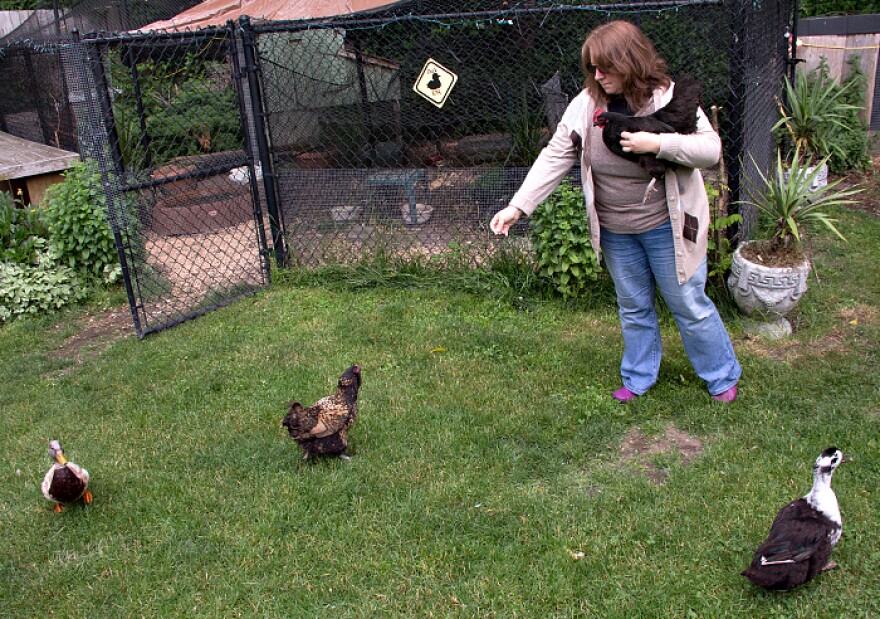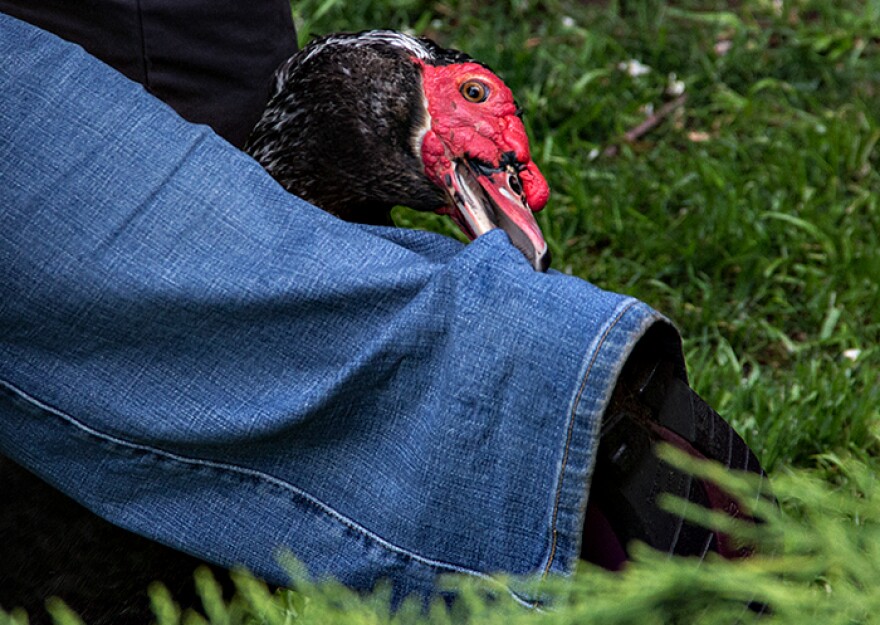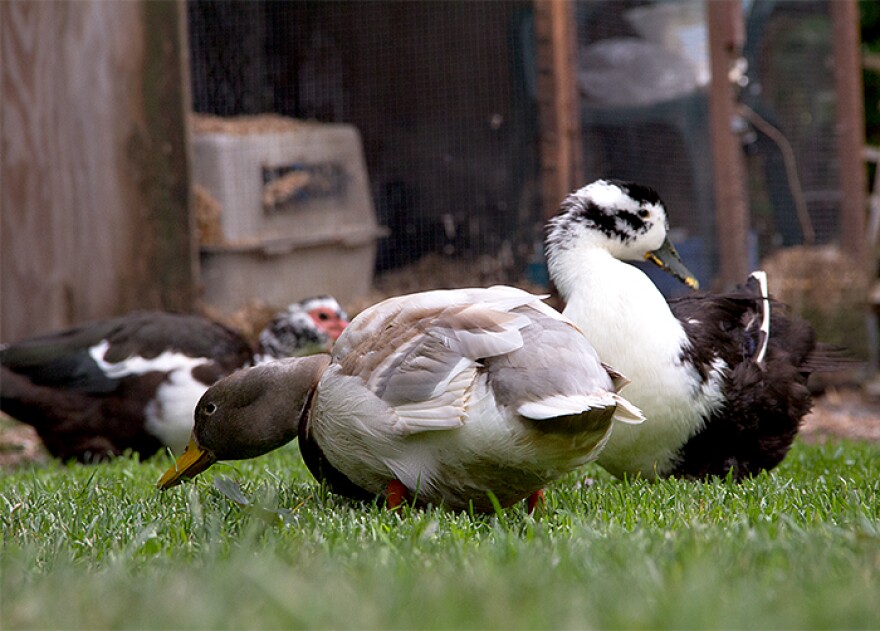Urban farming sounds like a great idea to many people. You can grow your own vegetables and put in a chicken coop, or keep some ducks to make it all come full circle.
But a Seattle woman behind an operation called Ducks and Clucks says many folks are biting off more than they can chew when it comes to the birds. It is she who often comes to their rescue.
Tiffany Young’s home in north Seattle looks pretty average from the street. But she’s transformed her backyard into a lively sanctuary.
“I like to describe my house as kind of a mullet," said Young. "It’s business up front, but a party in the back.”

At feeding time, a motley crew of rescued and handicapped ducks and chickens flock around her feet to get scraps of lettuce and watermelon. She has 11 in all.

“I originally rescued ducks, and tried to rescue ducks exclusively. And chickens just sort of started showing up, once the urban farming craze took off,” she said.
That was about five years ago. She quickly became the go-to person for shelters that aren’t well-equipped to handle fowl. Chickens stop laying a lot of eggs once they’re about 2 years old, Young said, but they live a lot longer.
“It’s a decade commitment you’re making on a lark," because you might get eggs from the experience or your kids might enjoy them, she said.
"I find a lot of of people get them for their kids. And I would say half of all chickens or ducks—people regret that decision within five weeks. They’re fully-grown in five weeks. The cute little fluffy experience is over, and all the work begins.”

Young finds the work to be worthwhile. She finds her birds have just as much personality and emotion—perhaps even more so—than cats or dogs. Her muscovy drake, a big guy named O’Malley Peepers, follows her around the yard much like a puppy.
Despite their personalities, Young learned first-hand that adopting a duck is a very impersonal experience when she adopted her first duck.
“I went to the feed store and thought I’d meet a few ducks and get to know which one I jived with, and see which one liked me. But the reality is they reach into a vat of about a hundred ducklings, and just plop one in a box."
She says his name was Mr. Flapper, and he cost $3. His food cost $7.

"And that’s when I first knew that that was going to be a real problem, that there were a lot of these birds out and about that weren’t really being valued,” she said.
Same goes for chickens, and Young says it may be getting worse. Three years ago, the city of Seattle raised the limit on the number of chickens you can keep to eight. She says the change has resulted in more clucks in her backyard aviary.
-----
Helpful links:
Advice from Tiffany Young, if you're thinking you want a pet duck.
Poultry Resource List from Seattle Tilth
FAQ about City Chickensfrom Seattle Tilth
City of Seattle Resources for Residents Who Want to Keep Chickens















